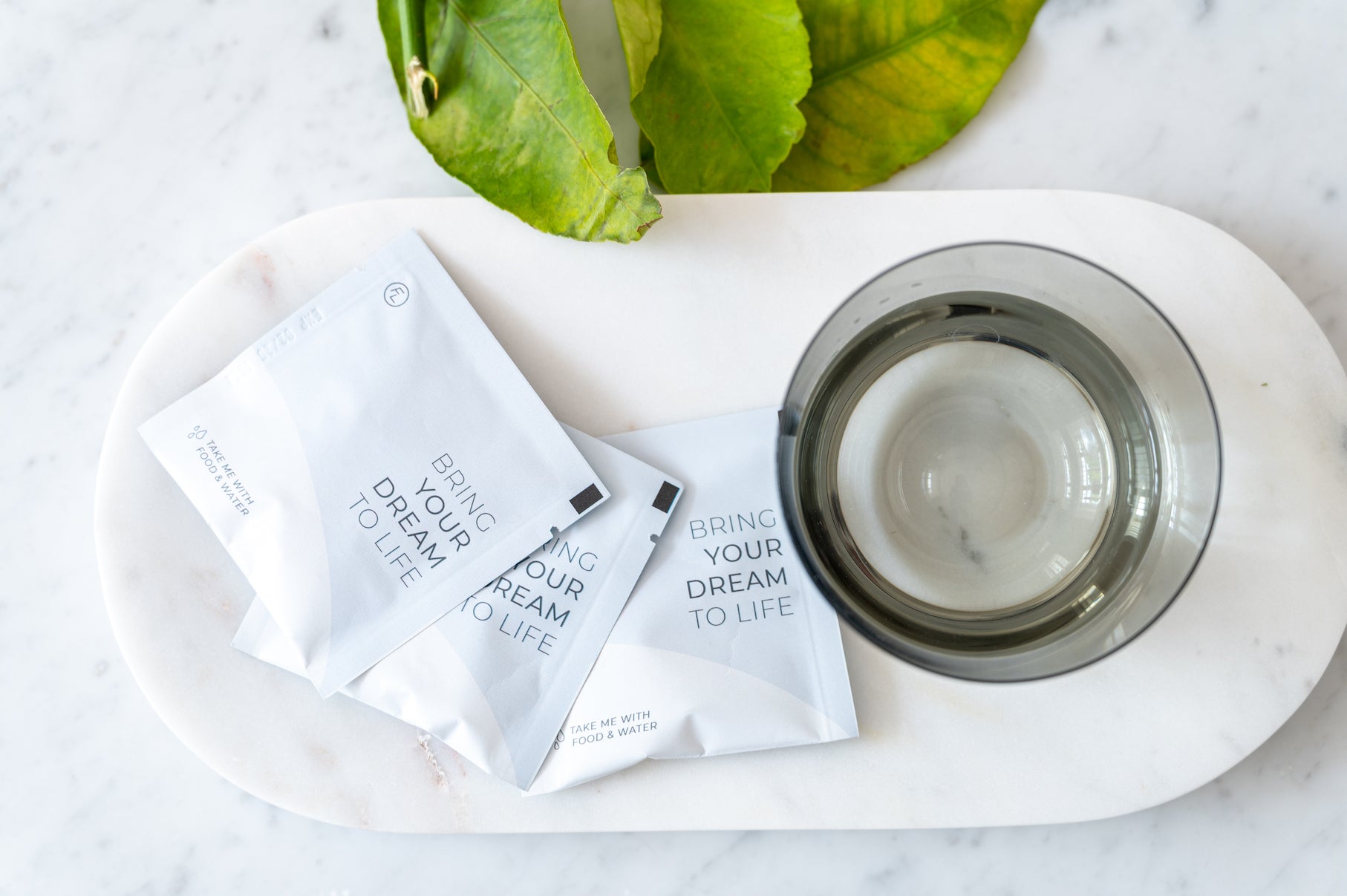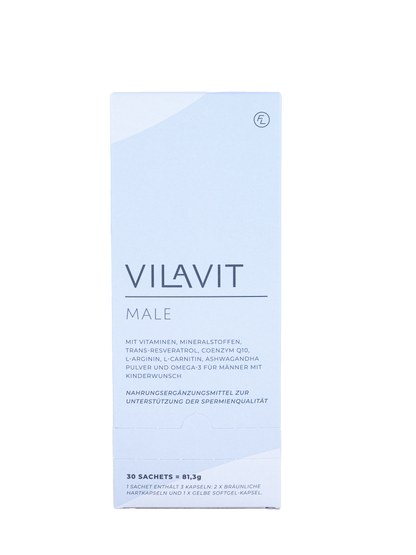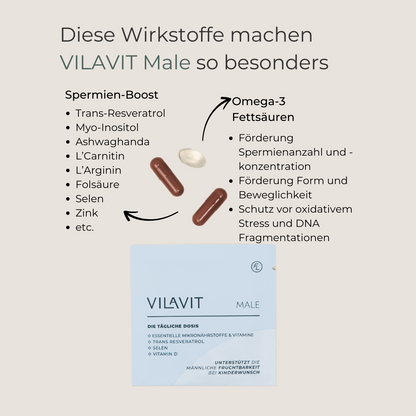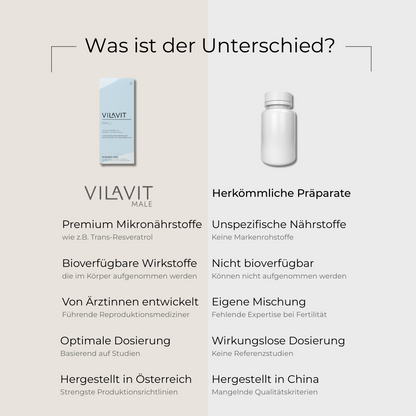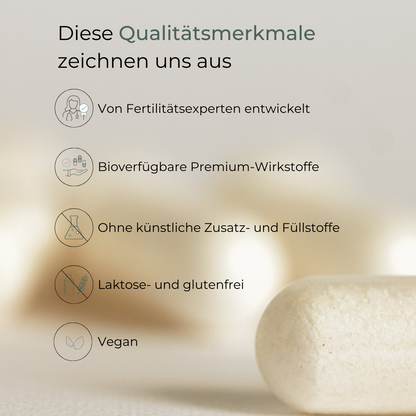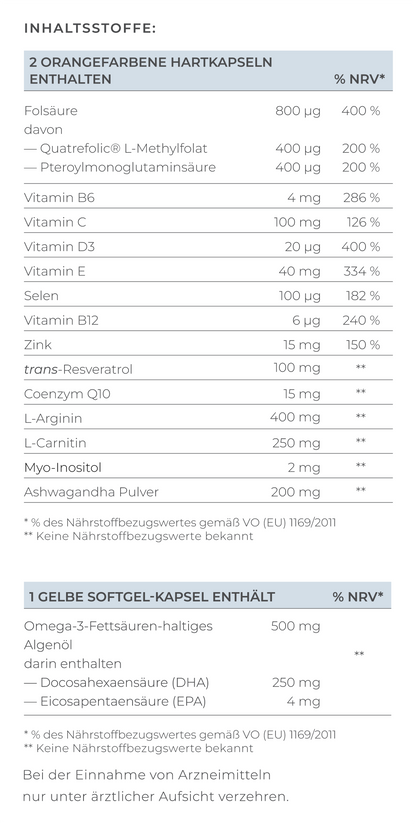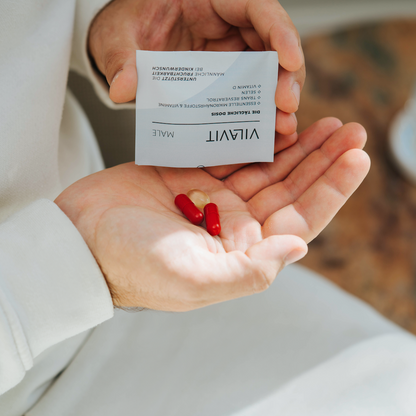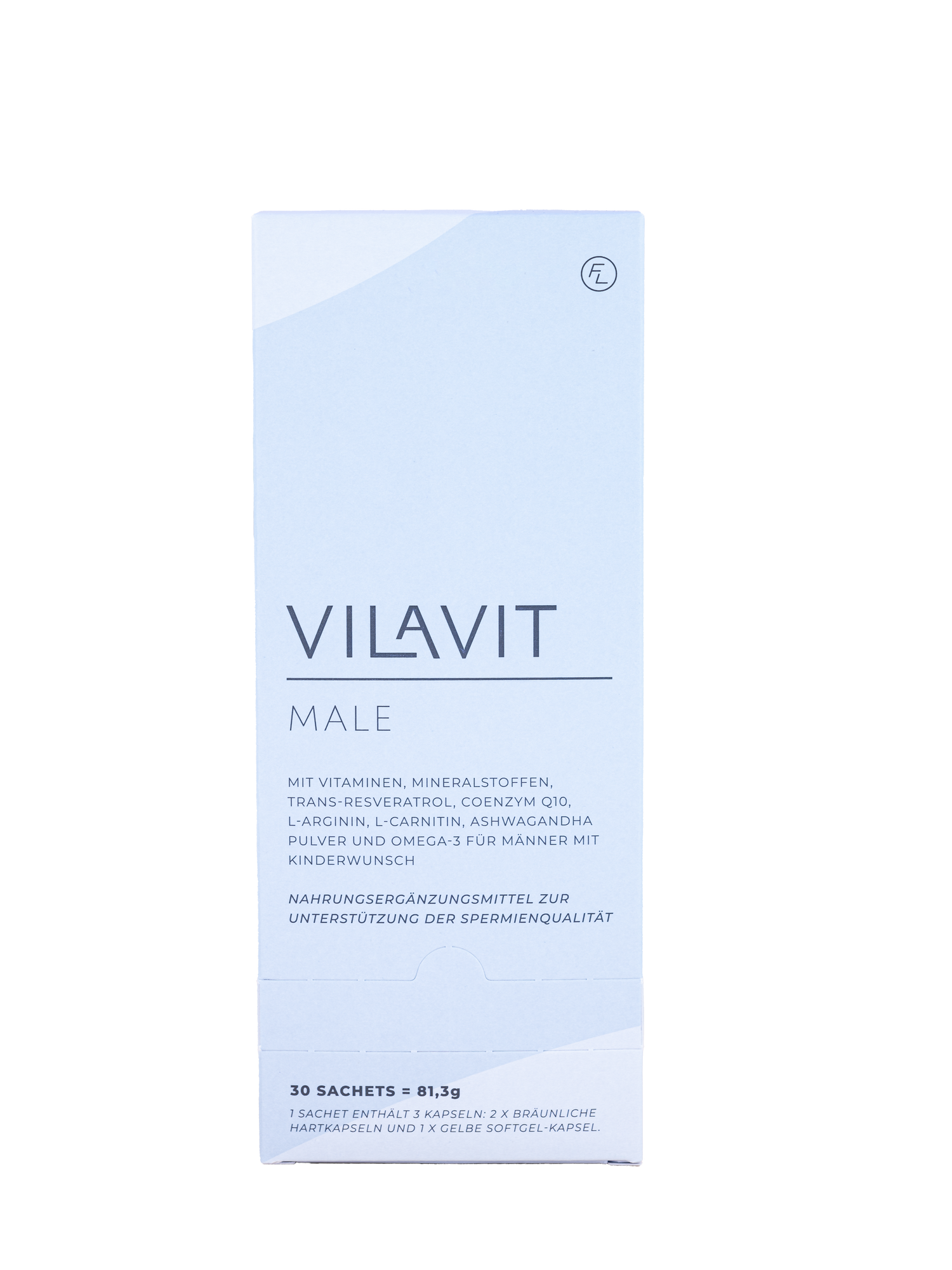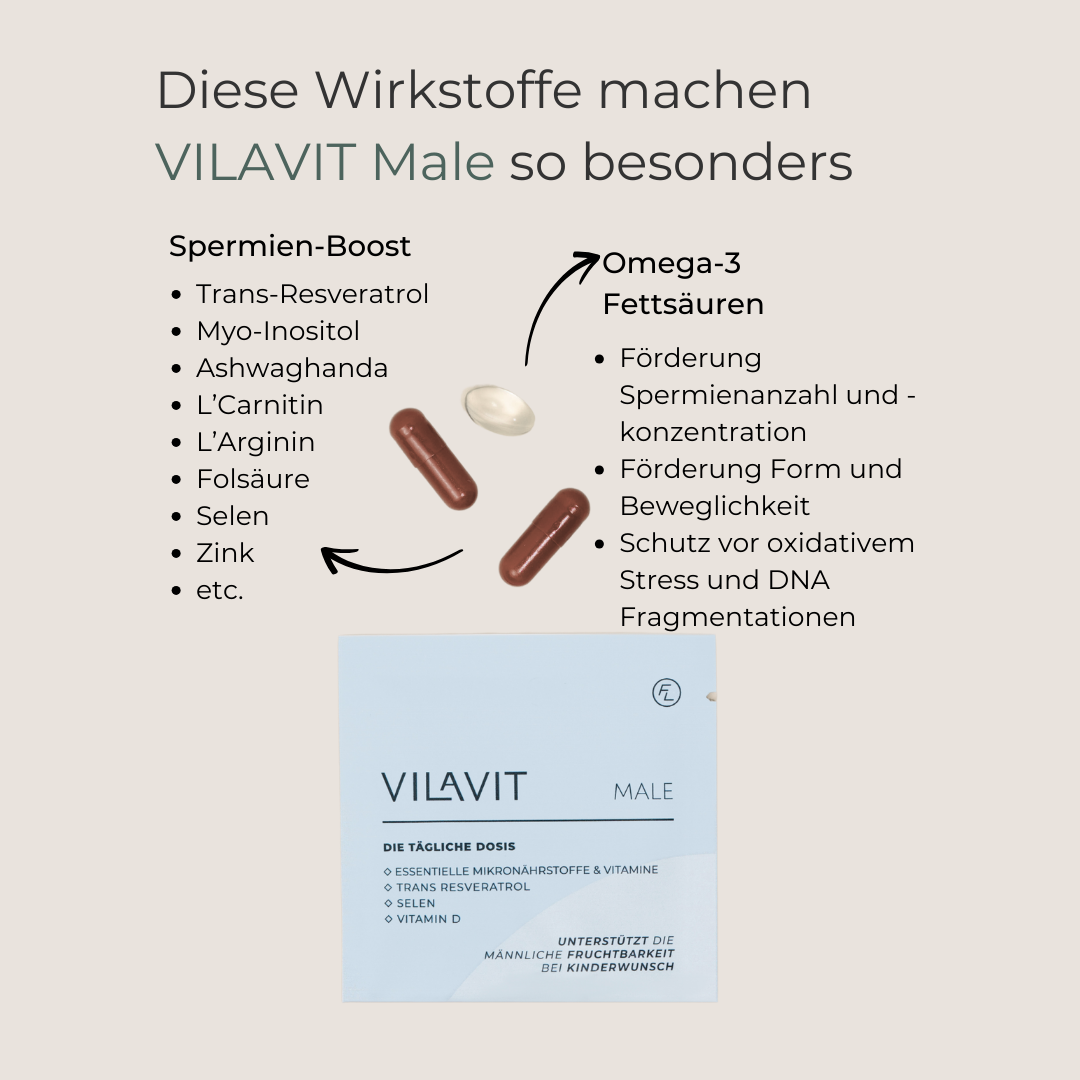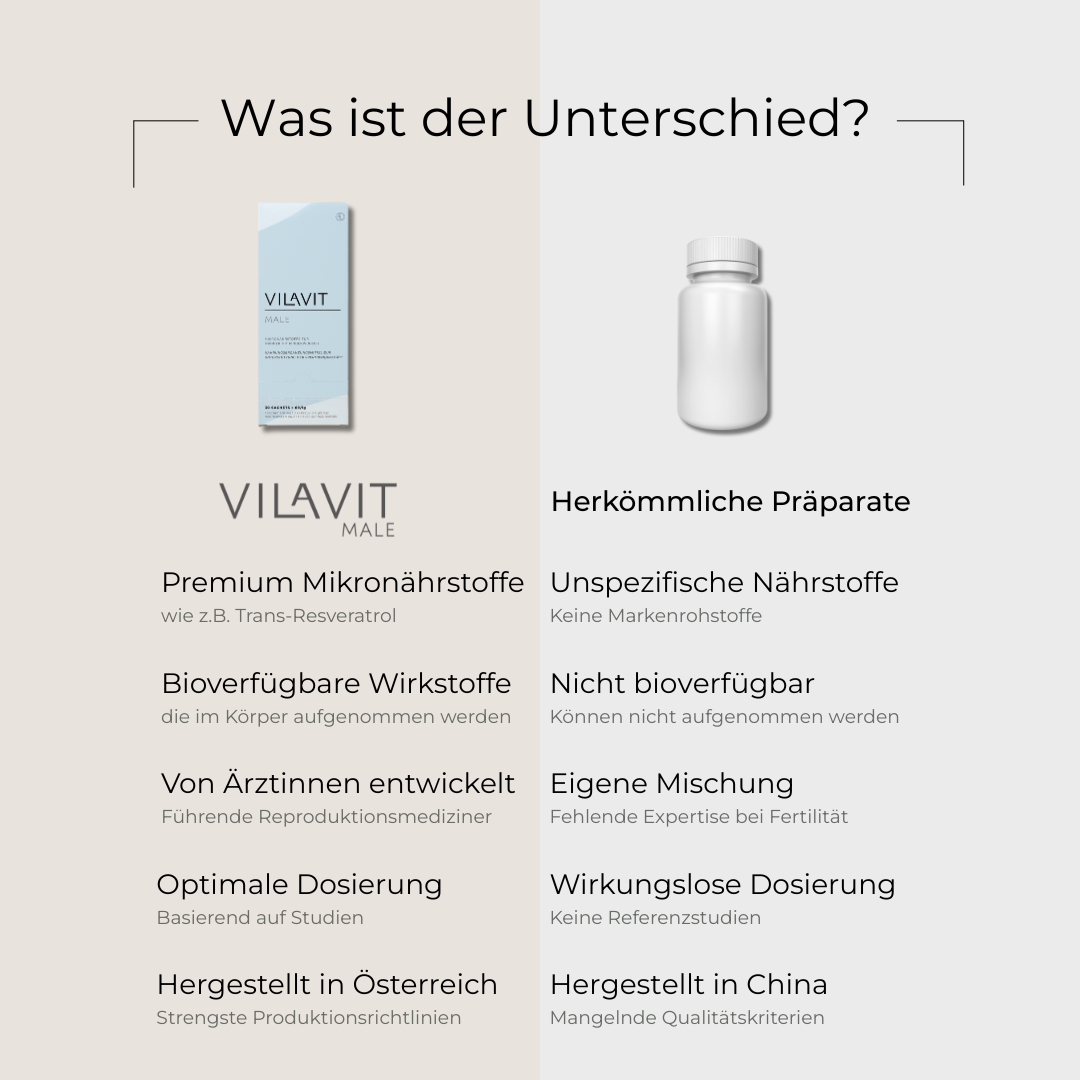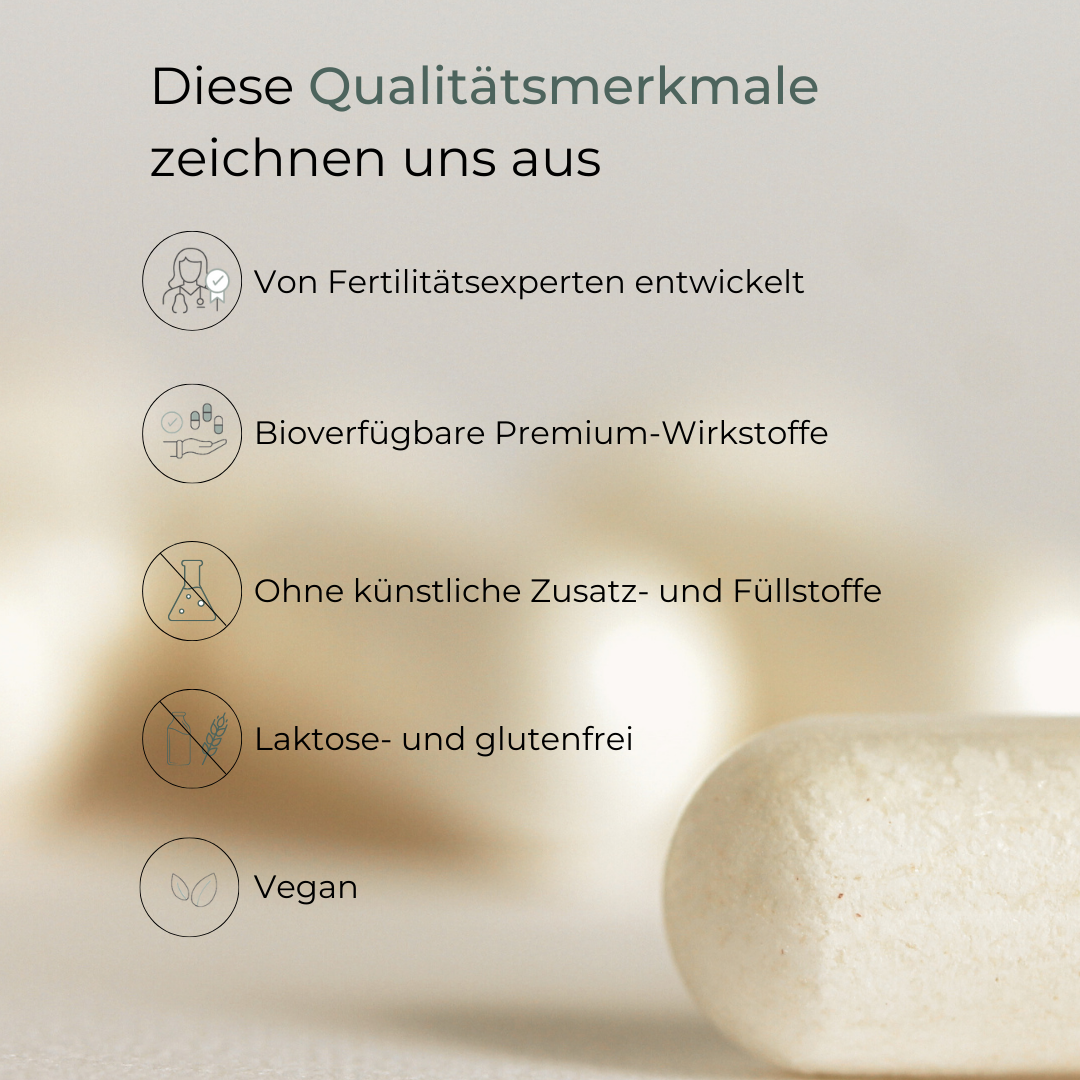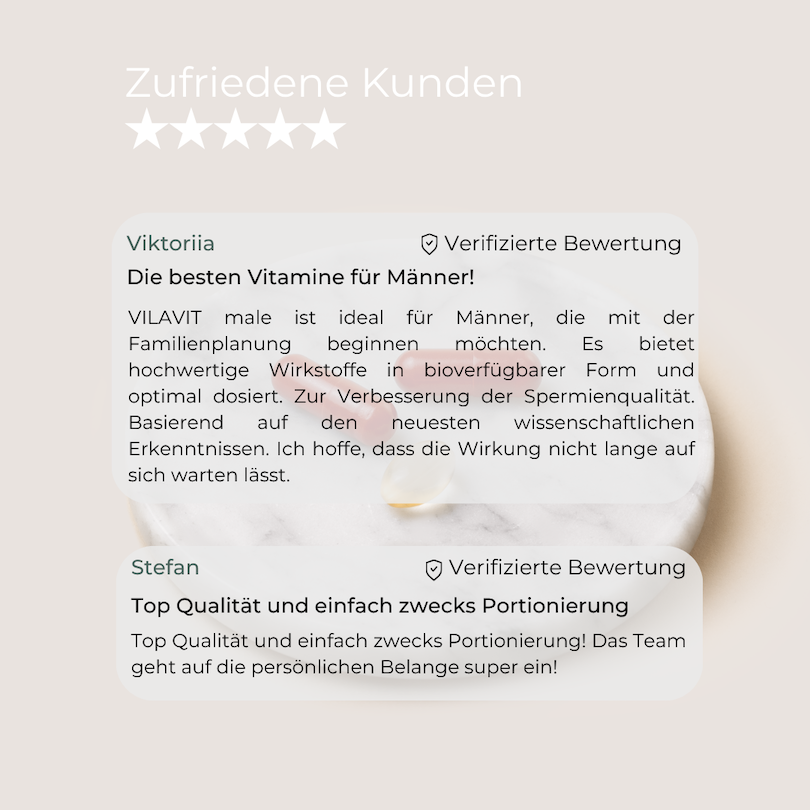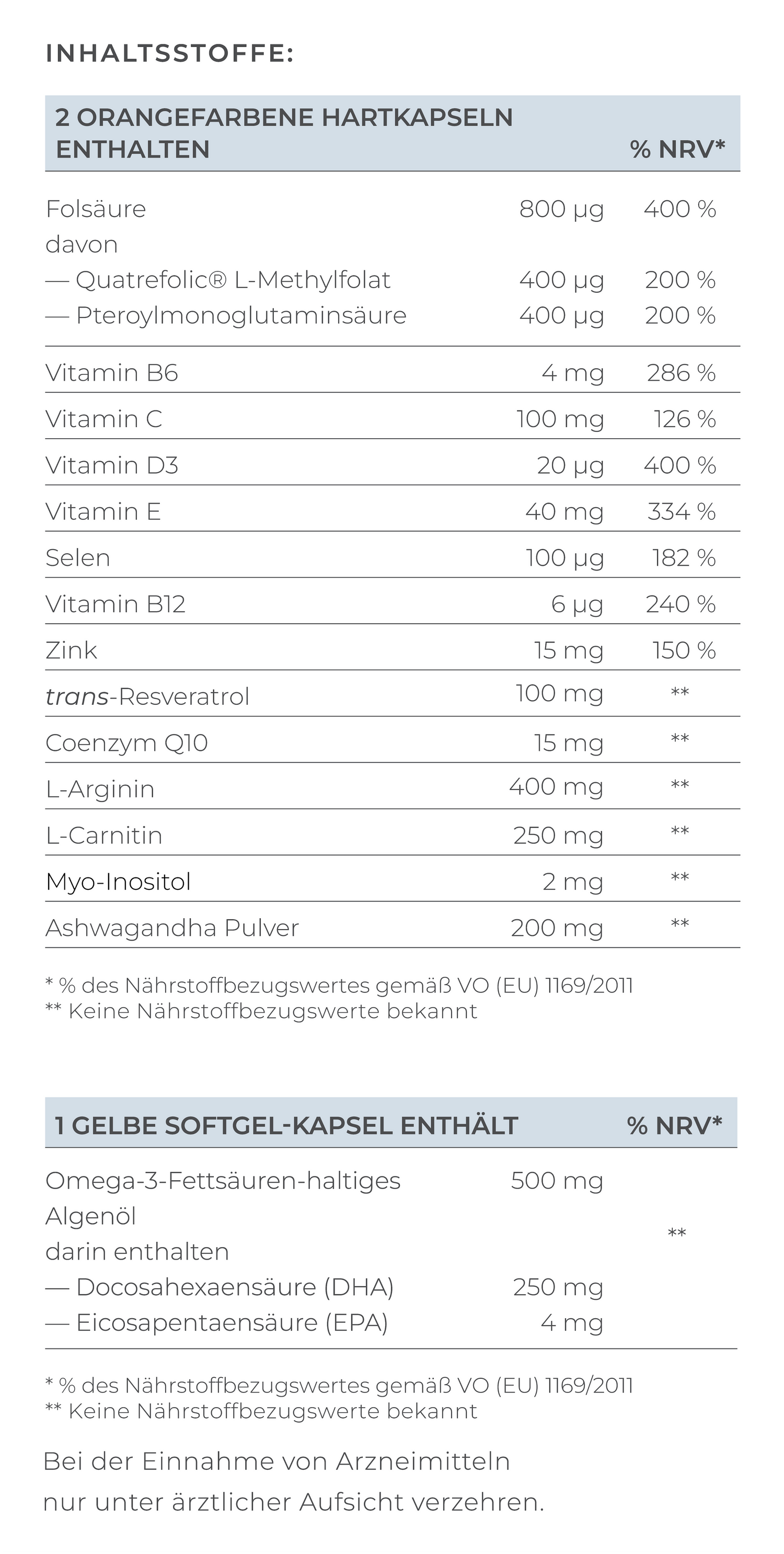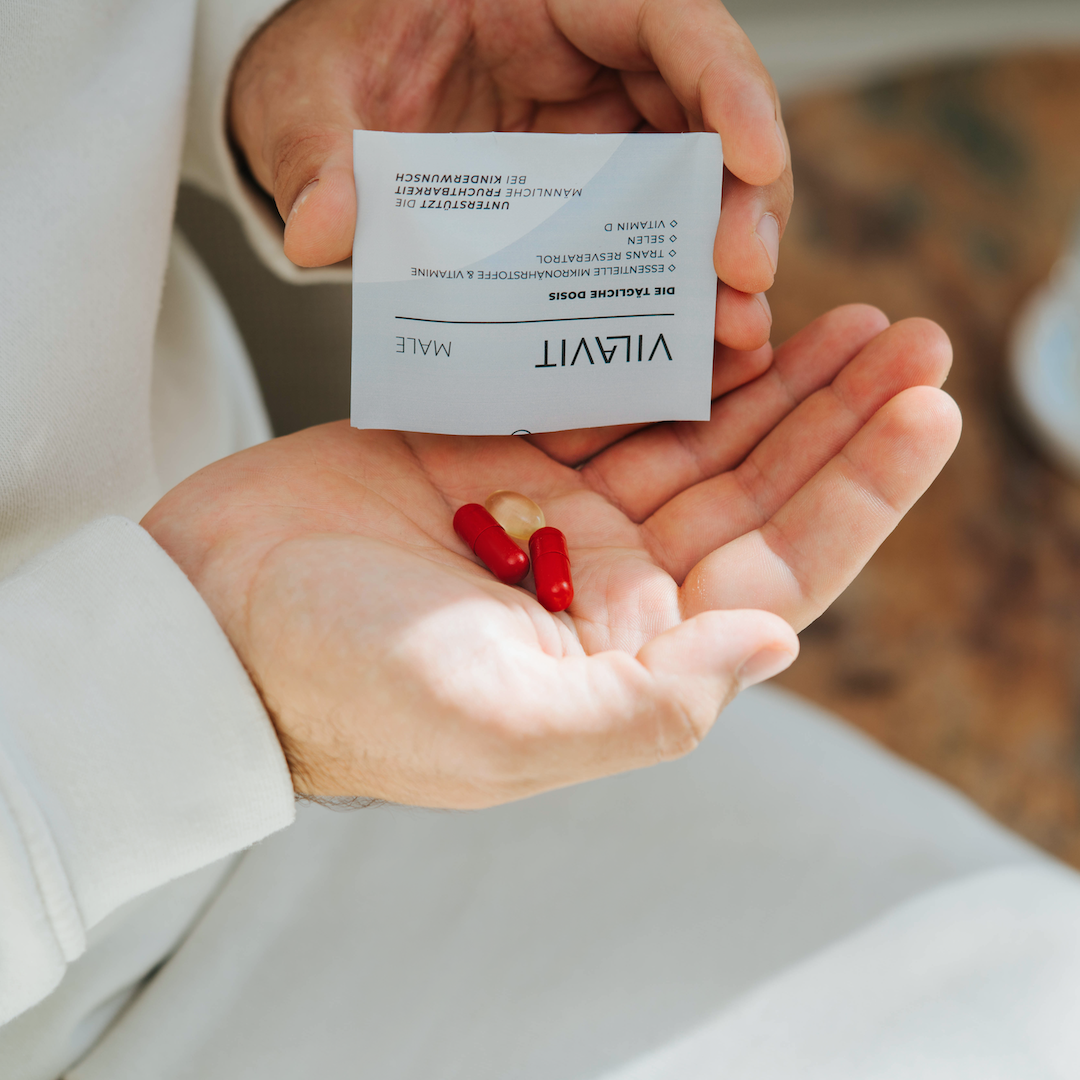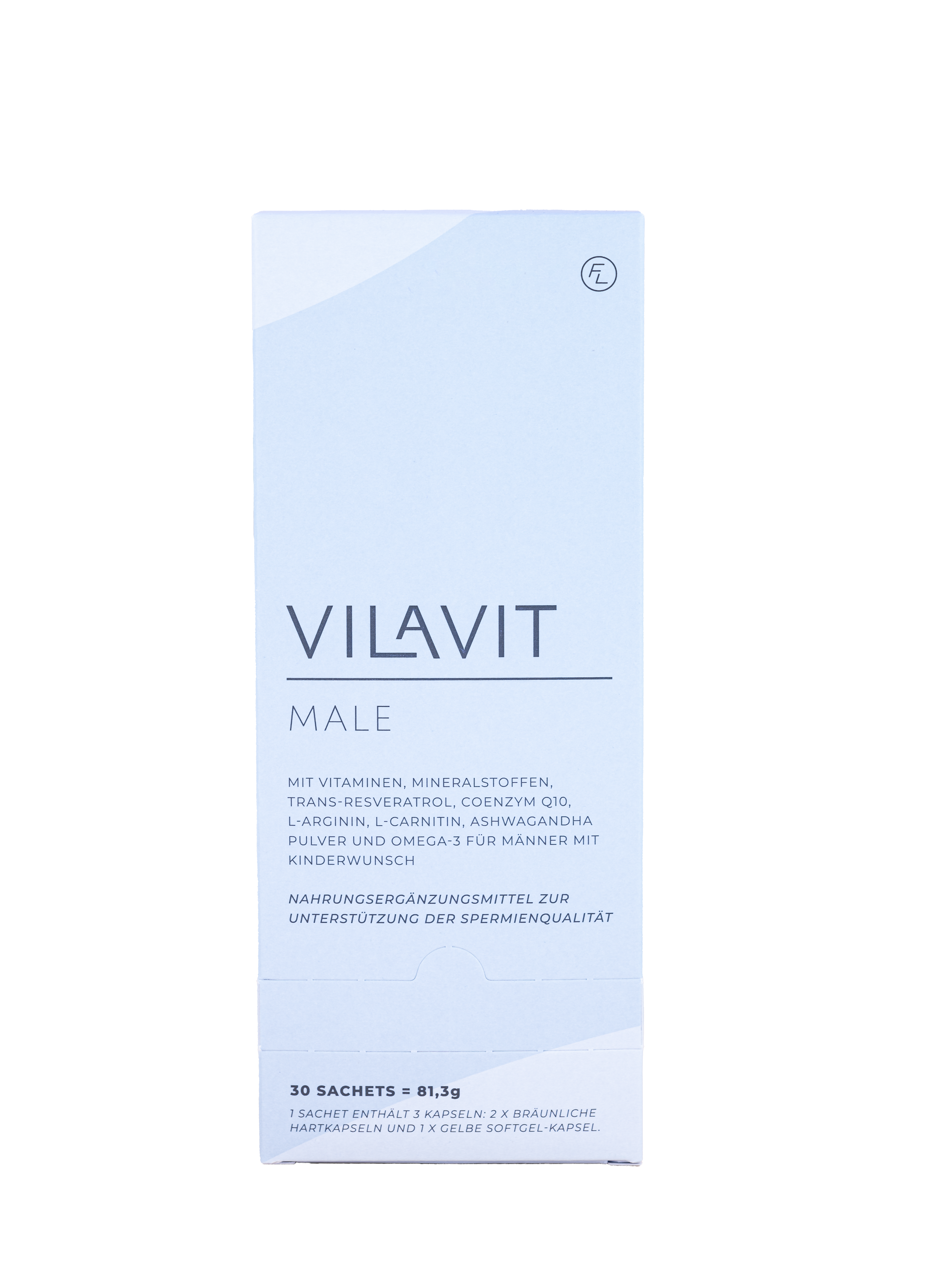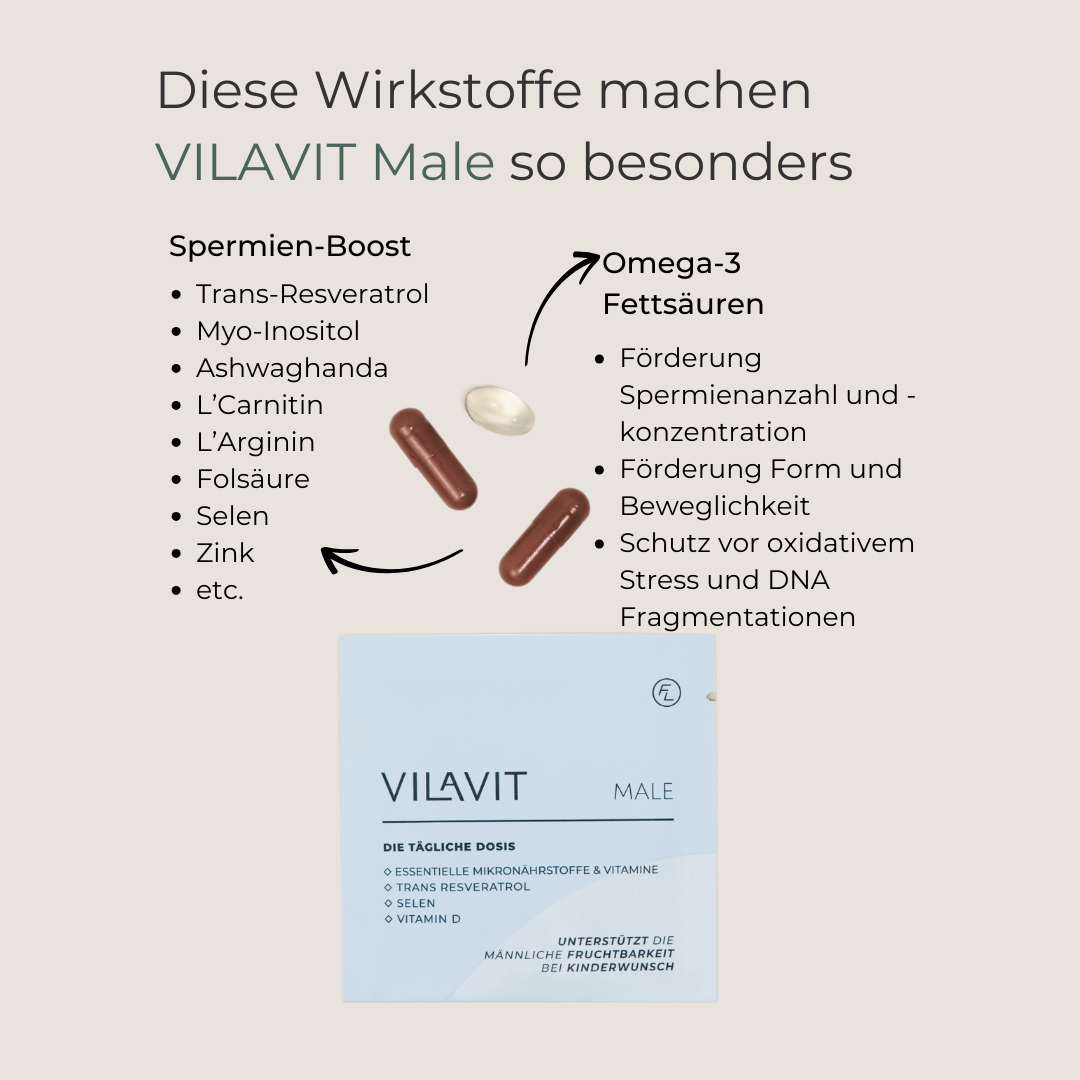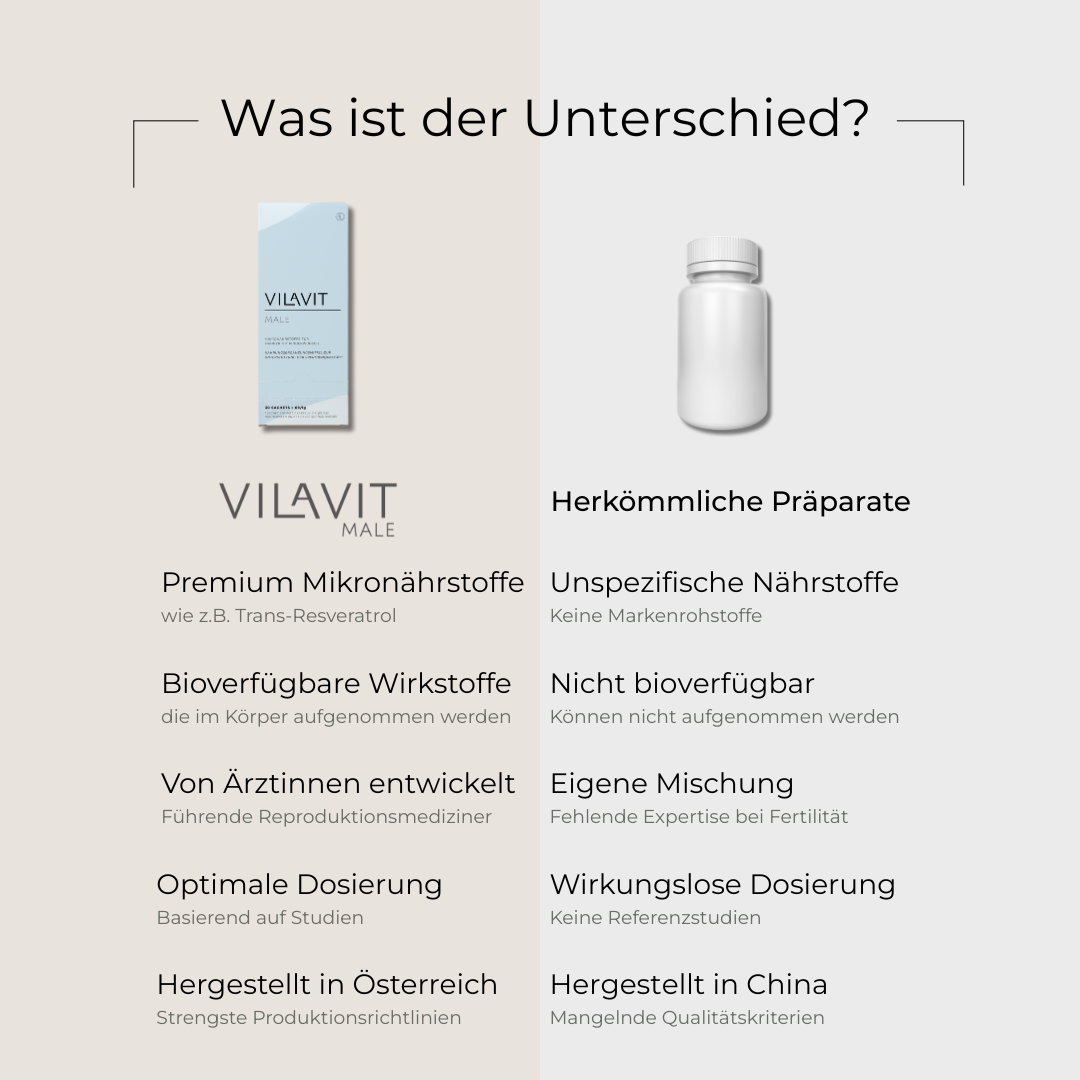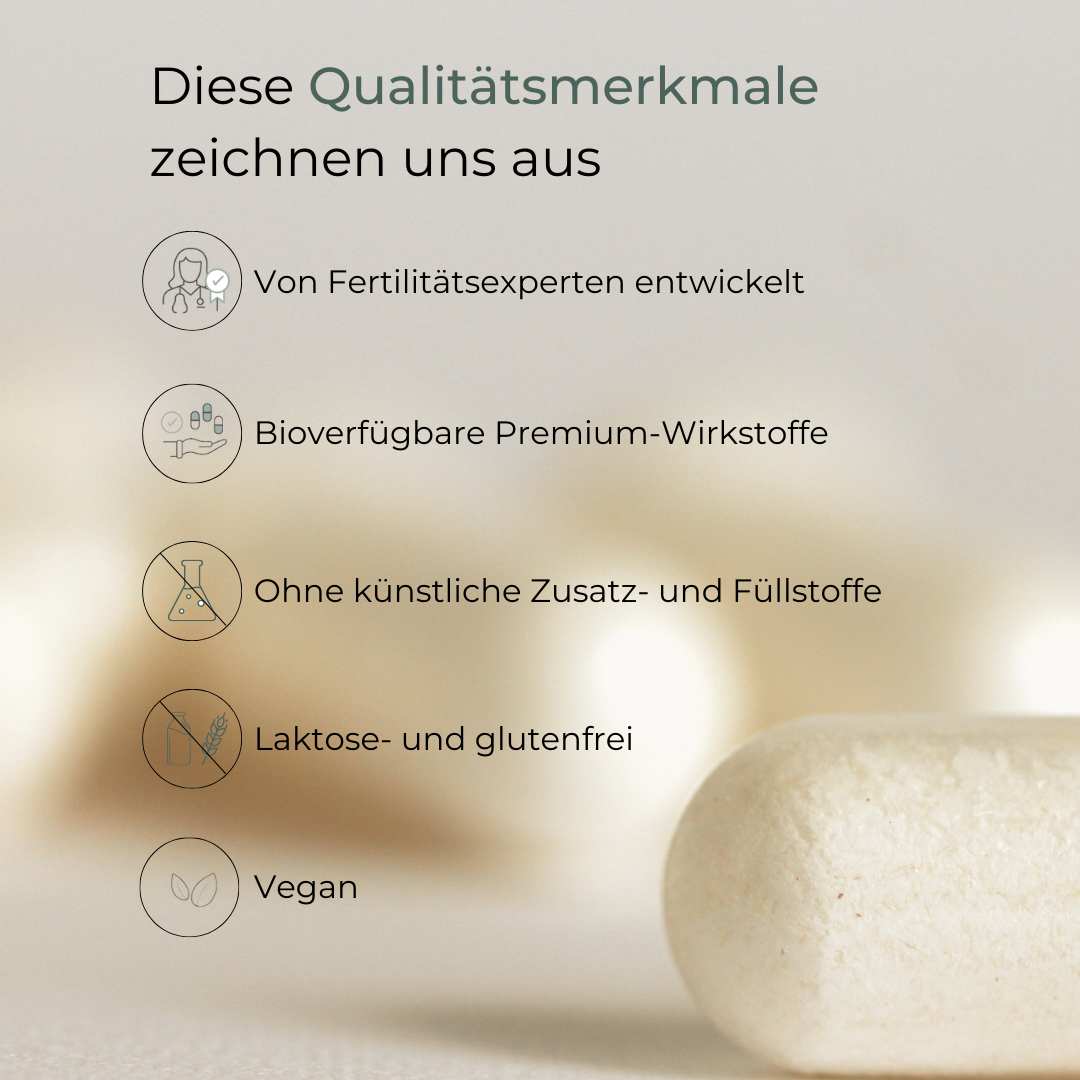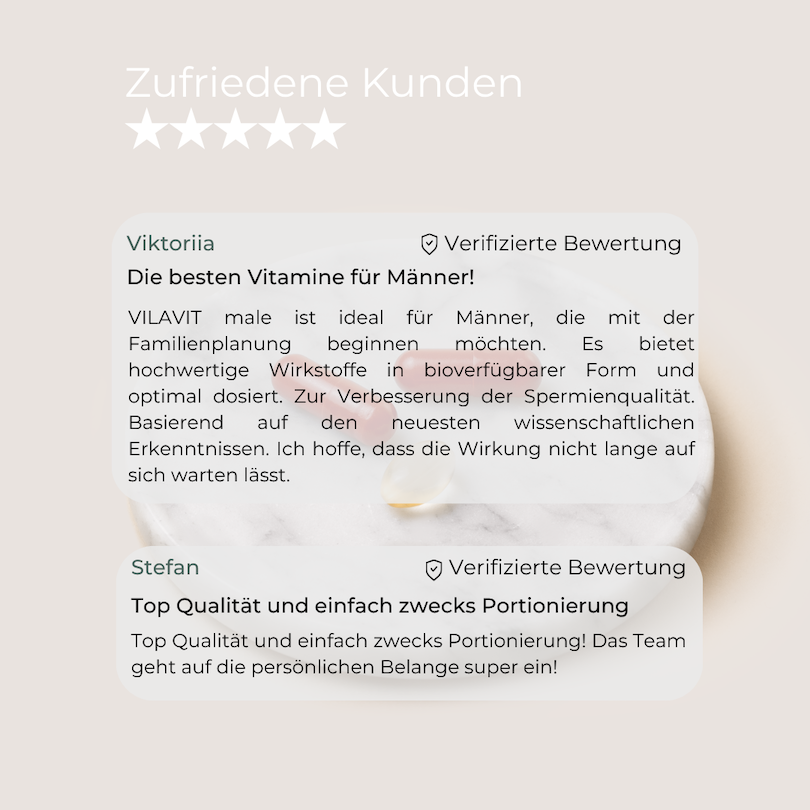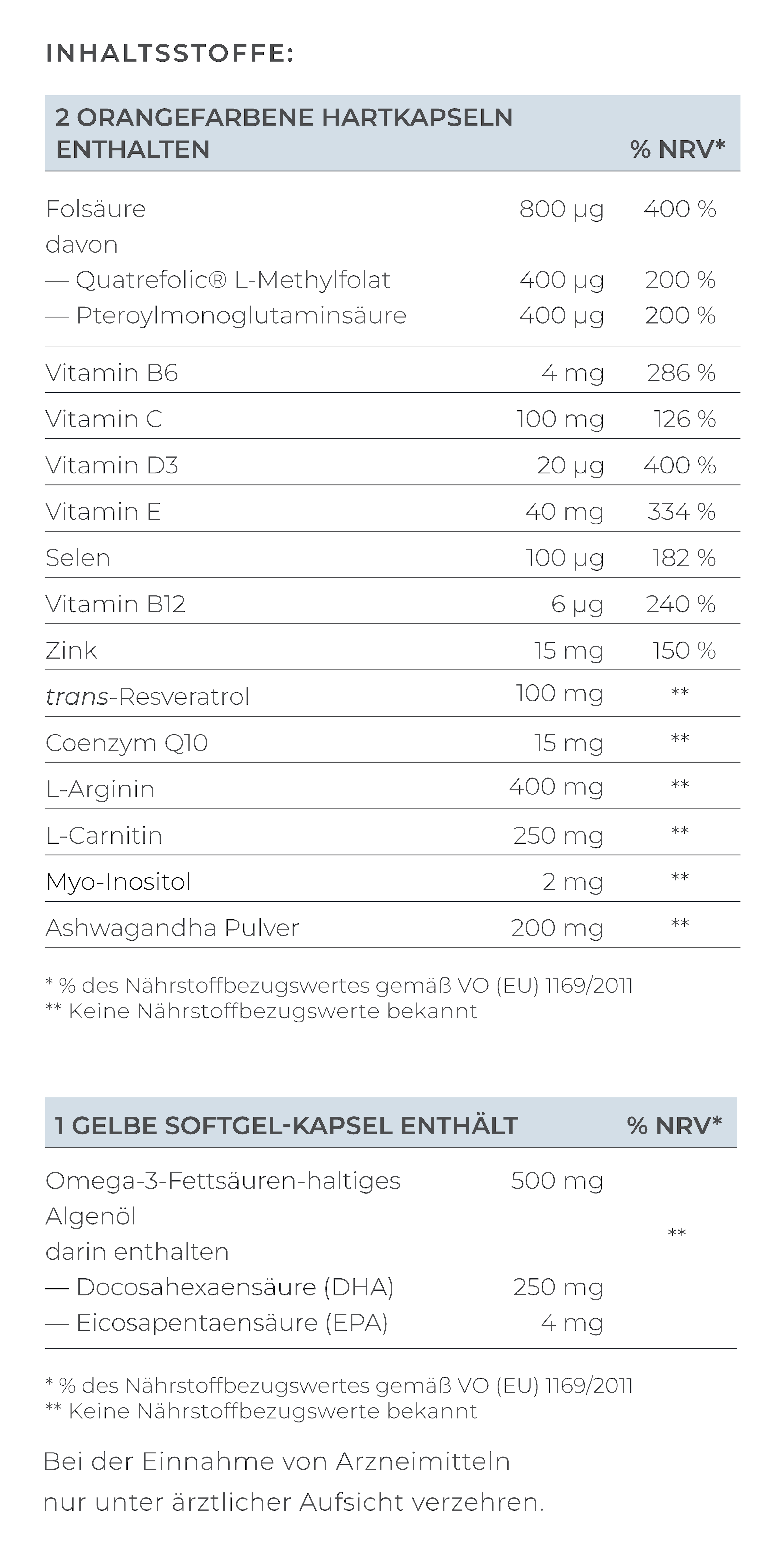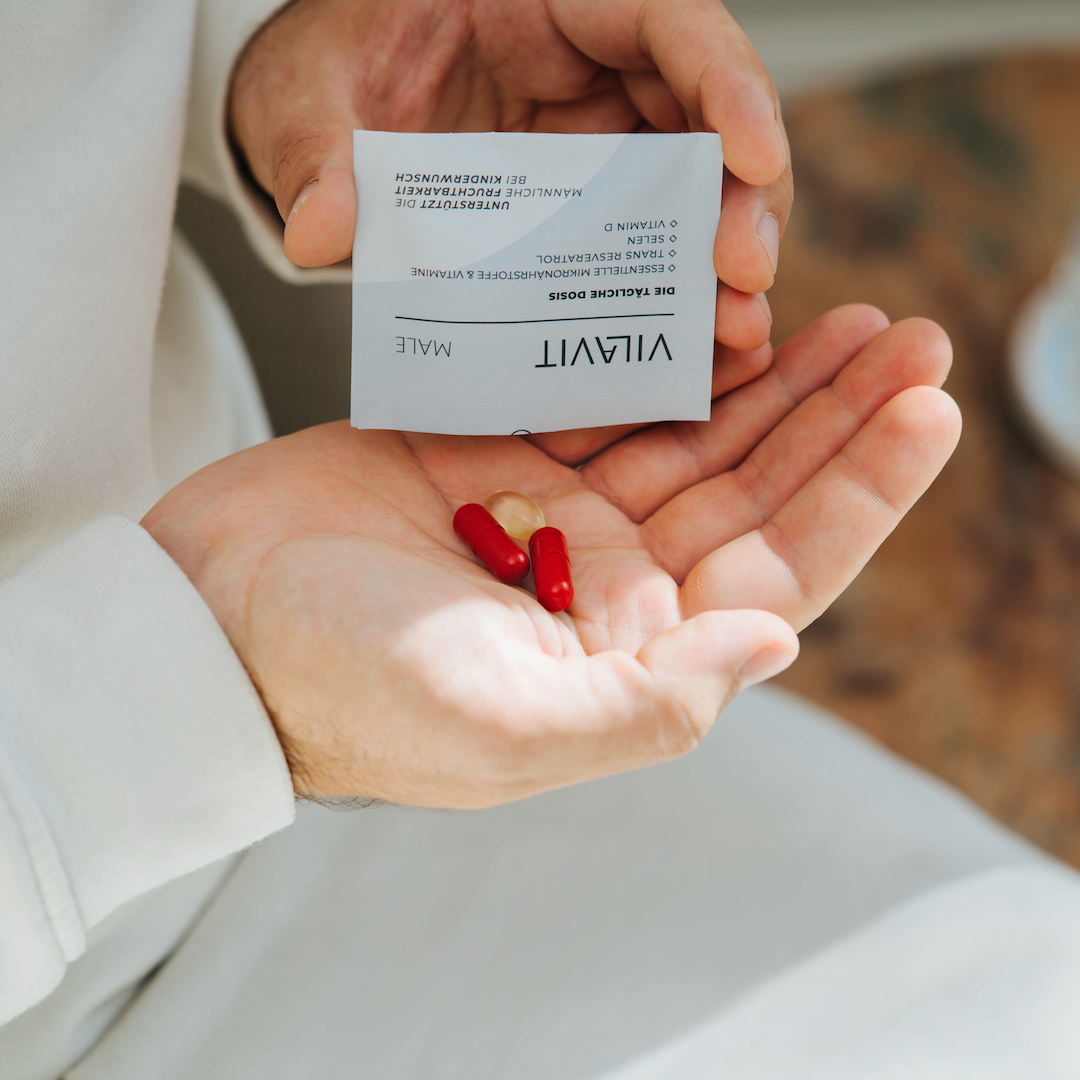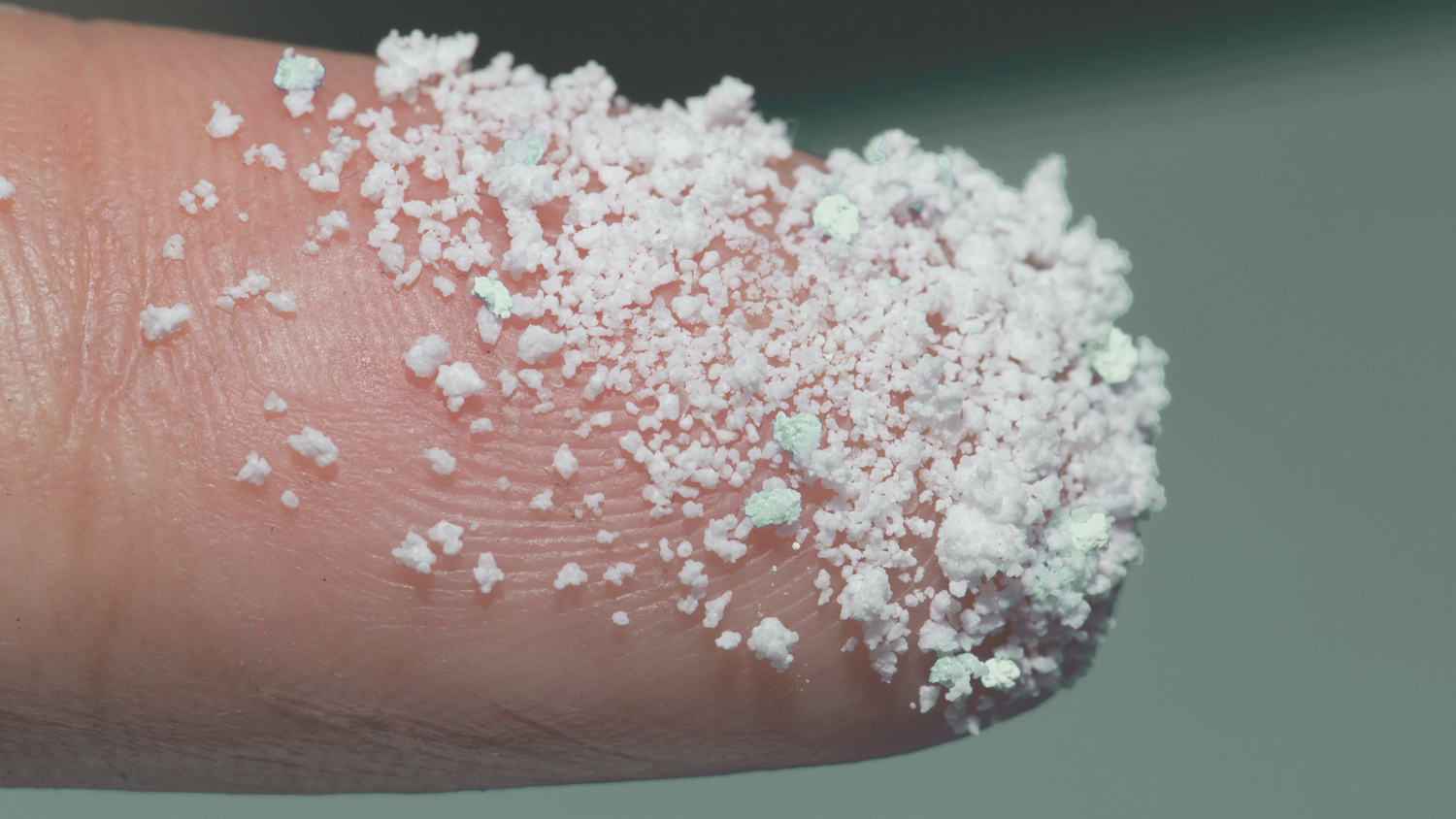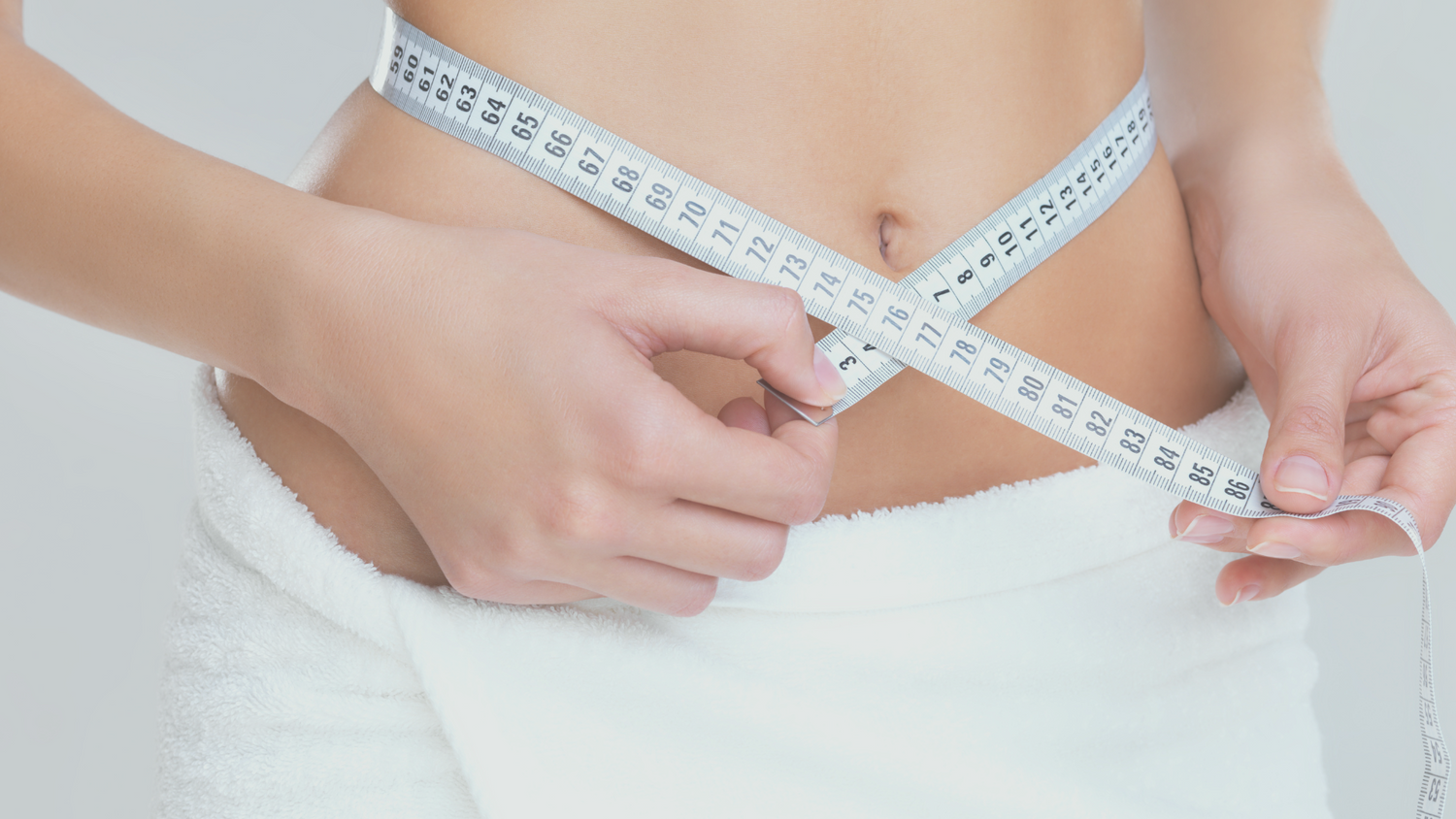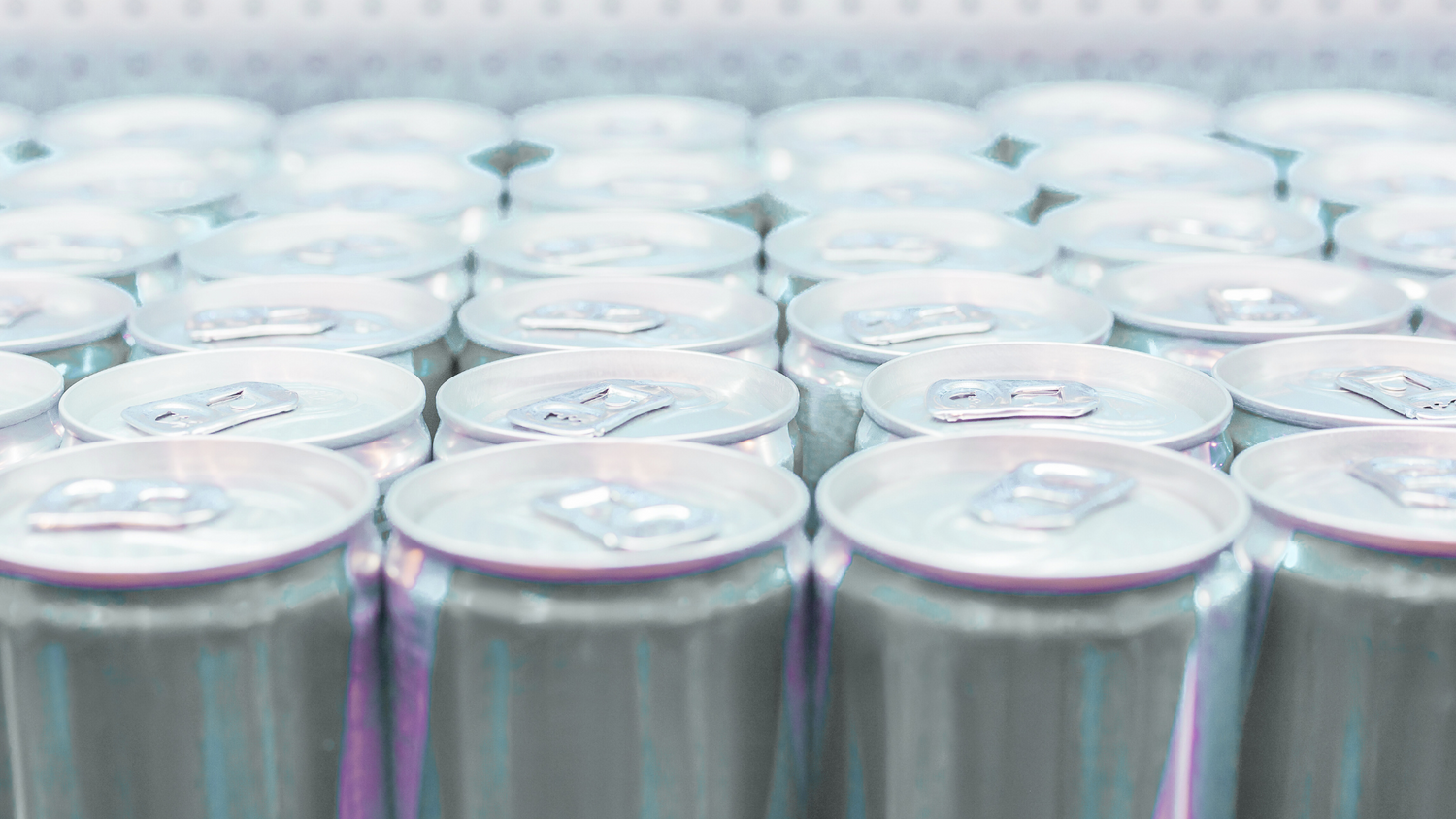The most important facts about Pimp my Sperm at a glance:
- With the right nutrients, men can improve their sperm quality.
- The first results are visible within 3-4 months (this is how long it takes for new sperm to form).
- Regular exercise can also improve sperm quality.
- VILAVIT Male provides all essential vitamins and micronutrients in the correct dosage.
- Combined with Pimp my Eggs for women, the chances of pregnancy can be increased.
Pimp your Sperm: Achieve optimal sperm quality with the right nutrition
Sperm quality plays a key role in male fertility – yet many men underestimate how much their lifestyle and diet can influence it. The Pimp my Sperm approach addresses this by providing essential nutrients that can actively support male fertility, helping contribute to a successful pregnancy.
In this article, you'll learn which vitamins and micronutrients are particularly important and how they positively influence sperm quality.
Why is sperm quality important?
Sperm quality is a crucial factor in the fertilization of the egg. Healthy sperm with good motility (movement) and normal morphology (shape) have a better chance of fertilizing an egg. Poor sperm quality can negatively affect fertility and reduce the chances of pregnancy, both naturally and through assisted reproduction.
Motile sperm have the advantage
Sperm must actively swim to reach the fallopian tubes, where fertilization takes place. Immobile sperm have a much lower chance of reaching the egg.
The shape matters
Normally shaped sperm can more easily penetrate the egg. Abnormally shaped sperm may have difficulty fertilizing the egg. According to the World Health Organization (WHO), at least 4% of sperm in a healthy ejaculate should be normally shaped.
Genetic integrity
Sperm carry half of the genetic material for the child. Good sperm quality also means that the DNA of the sperm is intact and free from damage that could lead to birth defects or diseases in the child.
What are the possible causes of poor sperm quality?
Oxidative stress:
Oxidative stress is caused by an imbalance between free radicals and antioxidants in the body. Free radicals are aggressive oxygen molecules that can damage cells and tissues, including sperm. A diet rich in antioxidants and the targeted intake of supplements can help reduce oxidative stress and protect sperm.
Unhealthy lifestyle:
Along with oxidative stress, lifestyle plays a key role. Smoking, alcohol, and drug use can negatively impact sperm production and quality. An unhealthy diet high in fast food, sugar, and saturated fats can lead to overweight and nutrient deficiencies, which also negatively affect sperm quality. Lack of physical activity can impair fertility as well.
Environmental factors:
Environmental factors such as pollutants, radiation, and heat can damage sperm. Stress, age, and obesity can also negatively affect sperm quality. It is important to note that many factors can influence sperm quality, and often a combination of various causes is involved.
Medical causes:
Various medical conditions can also lead to poor sperm quality, such as hormonal imbalances, infections, varicocele (varicose veins in the testicles), and chromosomal abnormalities.
Tips for improving sperm quality
-
Healthy diet: Ensure a balanced diet rich in antioxidants, including fruits, vegetables, whole grains, and healthy fats.
-
Supplements: In addition to a balanced diet, take antioxidants, essential vitamins such as Vitamin C, D, and E, and Omega-3 fatty acids. It’s important to use high-quality supplements with bioavailable ingredients for the best effect.
-
Lifestyle changes:
Reduce excessive alcohol consumption and quit smoking. Find ways to manage stress. Regular exercise also has positive effects on sperm quality. -
Avoid environmental toxins:
Avoid exposure to harmful environmental factors such as chemicals, solvents, and toxins.
Pimp my Sperm: The fertility vitamins that matter
Be cautious of unreliable “Pimp my Sperm” formulas
On the internet, you can read about the "Pimp my Sperm formula." However, these dosages and formulas are often not based on scientific studies and sometimes exceed the recommended nutrient values of the German Nutrition Society or authorized maximum levels. It is important not to experiment with dosages on your own, as overdosing over an extended period can be harmful!
Scientifically proven nutrients for sperm quality
Clinical studies have shown that the targeted intake of antioxidants and essential vitamins can improve sperm quality:
-
Trans-Resveratrol:
Trans-Resveratrol is a potent antioxidant found in red wine, grapes, and certain berries. It improves cell repair and protects sperm from oxidative stress, which can damage sperm DNA. Studies show that Resveratrol improves mitochondrial function in sperm, boosting their energy production and motility. (Li et al., 2018) -
Ashwagandha:
Ashwagandha (Withania somnifera) is an adaptogenic herb that has been shown to increase testosterone levels and improve sperm volume. Studies show that Ashwagandha can improve sperm concentration, motility, and morphology. It also reduces stress, which has a positive effect on male fertility. (Ahmad et al., 2010) -
Omega-3 fatty acids (EPA & DHA):
Omega-3 fatty acids, especially eicosapentaenoic acid (EPA) and docosahexaenoic acid (DHA), are essential for the structure of the sperm membrane. They help improve motility since a flexible membrane is key for penetrating the egg. Research shows that men with higher Omega-3 levels have better sperm morphology. (Safarinejad, 2011) -
Folic acid:
Along with Vitamin D and Vitamin E, Vitamin B6 and Vitamin B9 (folic acid) are crucial for healthy sperm production. Vitamin B9 is often recommended in combination with zinc, as various studies have shown positive effects on sperm count and quality. Folic acid combined with zinc can increase sperm count and quality. (Wong, 2002) -
L-Arginine:
L-Arginine is an amino acid that plays a key role in nitric oxide (NO) production, improving blood flow to the testes. Increased NO production can boost sperm count and improve their motility. (Buzadzic et al., 2014) -
L-Carnitine:
L-Carnitine is essential for the energy metabolism of sperm. It transports fatty acids into the mitochondria, where they are used as a source of energy. Adequate L-Carnitine intake can improve sperm motility and increase their survival rate. (Zhou, 2007) -
Vitamin D:
Vitamin D plays a crucial role in testosterone production, the hormone necessary for sperm production and maturation. Low Vitamin D levels are associated with lower sperm count (oligozoospermia) and motility. (Arab, 2019) -
Vitamin E:
Vitamin E is an important antioxidant that protects cells from free radicals. Studies have shown a link between Vitamin E levels and sperm quality. Men with low Vitamin E levels often have poorer sperm quality. (Wen, 2006) -
Zinc:
Adequate zinc intake is important for healthy sperm production. Zinc can increase testosterone levels and improve sperm quality and volume. (Schisterman, 2020) -
Coenzyme Q10:
Coenzyme Q10 is a powerful antioxidant that protects the mitochondria of sperm. It improves energy production and boosts sperm motility. Studies show that supplementation with Coenzyme Q10 can improve sperm concentration and morphology. (Nadjarzadeh, 2013)
Poor sperm production can be linked to various factors, such as unhealthy lifestyles, nutrient deficiencies, and oxidative stress. Taking Coenzyme Q10 and other key nutrients can lead to significant improvements in sperm quality.
All the essential micronutrients for Pimp my Sperm can be found in VILAVIT Male. The formula and dosage have been developed by leading fertility experts based on the latest scientific studies.
Conclusion: Pimp my Sperm can increase the chances of pregnancy
"Pimp my Sperm" offers a straightforward way to optimize male fertility through targeted intake of essential vitamins and micronutrients. This holistic approach has been proven to have a positive effect on male fertility and, when combined with other health-promoting measures, can increase the chances of a successful pregnancy.
FAQ about VILAVIT Male for Improving Sperm Quality
What should I keep in mind when taking VILAVIT Male?
In the first step, we recommend consulting a urologist or andrologist. A semen analysis (spermiogram) can provide information about the status of your sperm quality and count. It analyzes the number of sperm in the ejaculate, their motility, and shape. Healthy ejaculate contains millions of motile, normally-shaped sperm.
A poor semen analysis can be improved through targeted nutrient intake. If the spermiogram is suboptimal, we recommend high-quality micronutrients to support sperm production and maturation.
VILAVIT Male is based on the latest scientific studies and contains all the important and relevant nutrients to support male fertility.
Comparable products often contain harmful dosages or inferior ingredients.
How long before fertility treatments should I start taking VILAVIT Male?
The process of sperm maturation takes about 3-4 months. Therefore, it is advisable to consistently take high-quality fertility supplements during this period.
Can VILAVIT Male also support spontaneous pregnancies?
Yes! Even if you are trying to conceive naturally, VILAVIT Male can support and improve sperm quality.
What can women do to improve their fertility?
Not only men can optimize their fertility – women also have the opportunity to improve their egg quality through targeted measures. The so-called "Pimp my Eggs" approach focuses on a combination of healthy nutrition, targeted supplementation, and a conscious lifestyle to best prepare the eggs for pregnancy. This includes:
- Antioxidants such as Coenzyme Q10, Vitamin C, and Vitamin E to protect the eggs from oxidative stress
- Omega-3 fatty acids to reduce inflammation and stabilize cell membranes
- Folate (Vitamin B9) for healthy cell division and DNA synthesis
- Vitamin D, which plays a key role in hormone regulation and egg maturation
- A healthy diet rich in fresh vegetables, proteins, and healthy fats
- Avoidance of environmental toxins such as pesticides, plasticizers, and cigarette smoke
- Stress reduction, e.g., through meditation, yoga, or sufficient sleep
References
Wen, Joanne. The Role of Vitamin E in the Treatment of Male Infertility. Nutrition Bytes, 2006.


